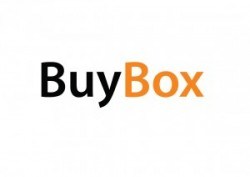 A Q&A with Bixy co-founder and CEO Kyle Johnson. The Kansas City, Missouri–based company was founded in 2010 and launched to the public at CES in early-January.
A Q&A with Bixy co-founder and CEO Kyle Johnson. The Kansas City, Missouri–based company was founded in 2010 and launched to the public at CES in early-January.
SUB: Please describe Bixy and your value proposition.
Johnson: Consumers are annoyed by ads online today—they’re creepy or just plain useless. But ads aren’t going away because websites and media services rely on ad revenue to keep the content free for users.
We’d like to replace the ads consumers typically see with personalized rewards. Rewards can be discounts on products or other incentives for the consumer. Ultimately, this will mean fewer and better ads. For businesses, it means better results and less wasted money on inefficient advertising. For websites, it means more revenue. Everyone wins.
SUB: Who are your target markets and users?
Johnson: Bixy serves several different groups, including consumers, businesses and advertisers, and web publishers. Broadly, the consumers we’re after will be Gen-Ys skewing toward females and those concerned about privacy on the web.
We want to appeal to both small and large businesses. For small businesses, we will be a free and easy option to get exposure to consumers on the web. For large businesses, we can be a very efficient and laser-focused alternative to the shotgun blast banner ad services out there.
SUB: Who do you consider to be your competition?
Johnson: Our competitors are other ad networks that primarily use tracking cookies and other less-than-transparent technologies used to target consumers on the web.
SUB: What differentiates Bixy from the competition?
Johnson: We believe that advertising should be transparent and that consumers should control their advertising experience. We also want consumers to mostly get personalized rewards instead of traditional banner ads. Today advertisers rely on sneaky tracking technologies to attempt to profile and target consumers. Not only does this raise a whole bunch of privacy concerns, but also it turns ad serving into guesswork. We want to go right to the consumer and ask, “Ok, what do you want?” and then give it to him or her. We believe everyone wins when consumers control their own data on the web.
SUB: When was the company founded and what were the first steps you took in establishing it?
Johnson: We arrived at our current path in 2010. Really the first things we tackled were putting together a team of developers and a strong advisory board full of relevant industry experts. In particular, we have some big players from the music and advertising industries as advisors. These guys understand the challenges faced by big content creators, media publishers and advertisers, and
have helped us refine Bixy’s solution over time.
SUB: What was the inspiration behind the idea for Bixy? Was there an ‘aha’ moment, or was the idea more gradual in developing?
Johnson: We initially wanted to create a streaming music service—something akin to Spotify before it entered the U.S. market. However, while building that product, we realized that the current economics of streaming music are horrendous. Your two options are to offer a premium-only service where you’ll make very little money, or to offer free, ad-supported listening where you’ll lose a ton of money. Neither option seemed good to us, so we set out to fix the ad model instead. We hope to help Pandora, Spotify and many other web publishers significantly improve their revenues.
SUB: How did you come up with the name? What is the story behind it?
Johnson: Lots of beer and self-loathing. Kidding aside, finding a short, two-syllable name and domain that isn’t taken is like pulling teeth. After racking our brains for a couple of weeks, we determined that the media and ad worlds really consisted of four stakeholder groups: consumers, advertisers, content creators, and publishers. We drew a matrix with these four groups and drew a box around it, and were like “hey a box…BOXY!” Then we quickly realized that Boxee was taken and changed it to Bixy. Boom. Not, admittedly, very fascinating.
SUB: What have the most significant obstacles been so far to building the company?
Johnson: The biggest challenge tech companies face in the Midwest is access to capital. There’s a lot of money out here but it’s difficult to shake loose for first-time entrepreneurs. Technology has not historically been a major component of the area economy, but there have been some great advances recently to fix the problem. We see a boom of tech coming to the Midwest over the next 5-to-10 years, but it will take effort by many folks within the ecosystem.
Having said that, we have benefited significantly from this capital scarcity. It makes you really examine your model closely and forces the necessary pivots hard and fast. There’s very little money available to scale a bad business.
SUB: You just launched to the public. Why was this a particularly good time to launch?
Johnson: We had to complete several key features before we could truly have a minimum viable product. Bixy is admittedly fairly complex. Once we got this stuff done, we decided it was time to flip the switch.
SUB: How does the company generate revenue or plan to generate revenue?
Johnson: We’ll generate revenue from businesses and ad agencies that spend money to advertise through Bixy. To help grow our reach, we’re working to establish partnerships with digital publishers and ad agencies. These partnerships will amplify our distribution and help drive consumer adoption.
SUB: What are your goals for Bixy over the next year or so?
Johnson: We’re looking to build as many publisher and advertiser/ad agency relationships as possible. We want to be a widely-known alternative to bad ads by 2014.
Bixy – www.bixy.com











